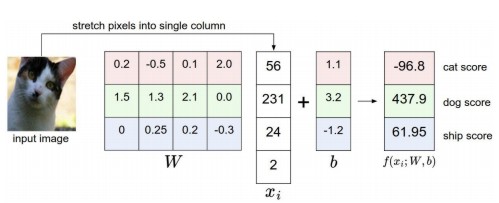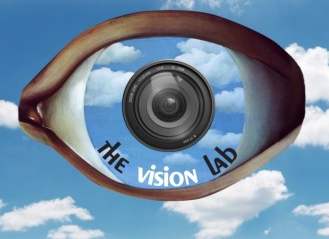| Second Opportunity For Convolutional Neural Networks Class |
| Written by Sue Gee | |||
| Tuesday, 19 January 2016 | |||
|
A class that is the cutting edge of machine learning and artificial intelligence is being run for the second time at Stanford this trimester. It is also available online to anyone who cares to follow along, this time with videos of the live lectures. The second presentation of CS231n: Convolutional Neural Networks for Visual Recognition, aka ConvNet, started on January 4th and its website, where you'll find the complete syllabus, already has four hour-long videos together with slides, notes and other resources including a Python/Numpy tutorial. The course has been developed by members of the Stanford Vision Lab. The initial lecture, introducing the course by delivered by the lab's director Fei-Fei Li, who pointed out that as she was about to go on maternity leave it would be her Ph D students Andrej Karpathy and Justin Johnson who would be taking over the day-to-day running of the course. As well as collaborating in creating this couse, Kaparthy maintains several deep learning libraries written in JavaScript, including ConvNetJS, a framework that brings deep neural networks to your browser, which IProgrammer welcomed as "a good and very useful piece of work" when we reported on it. The focus of this course is Computer Vision and much of its background and materials are drawn from the ImageNet Challenge, which will be familiar to I Programmer readers.
According to the course description: This course is a deep dive into details of the deep learning architectures with a focus on learning end-to-end models for these tasks, particularly image classification. During the 10-week course, students will learn to implement, train and debug their own neural networks and gain a detailed understanding of cutting-edge research in computer vision. The final assignment will involve training a multi-million parameter convolutional neural network and applying it on the largest image classification dataset (ImageNet). We will focus on teaching how to set up the problem of image recognition, the learning algorithms (e.g. backpropagation), practical engineering tricks for training and fine-tuning the networks and guide the students through hands-on assignments and a final course project. It is being opened up to those outside Standford as part of its aim to built up into a comprehensive reference for building, training, understanding and debugging CNNs. While outsiders won't gain credit or be able to submit assignments for marking, it will be possible to try them out and see what happens. There is also a Reddit for discussion and questions from all participants and questions from online students are responded to. One question early in the course was about how accessible it would be to an "ML newbie". One respondent provided the pre-requisites as outlined in the first lecture:
Another respondent recommended the early lectures in Andrew Ng's Machine Learning MOOC on Coursera as filling the final pre-requisite.
More InformationCS231n: Convolutional Neural Networks for Visual Recognition Related ArticlesConvNetJS - Deep Learning In The Browser The Deep Flaw In All Neural Networks Google's Neural Networks See Even Better
To be informed about new articles on I Programmer, sign up for our weekly newsletter, subscribe to the RSS feed and follow us on, Twitter, Facebook, Google+ or Linkedin.
Comments
or email your comment to: comments@i-programmer.info |
|||
| Last Updated ( Tuesday, 19 January 2016 ) |



